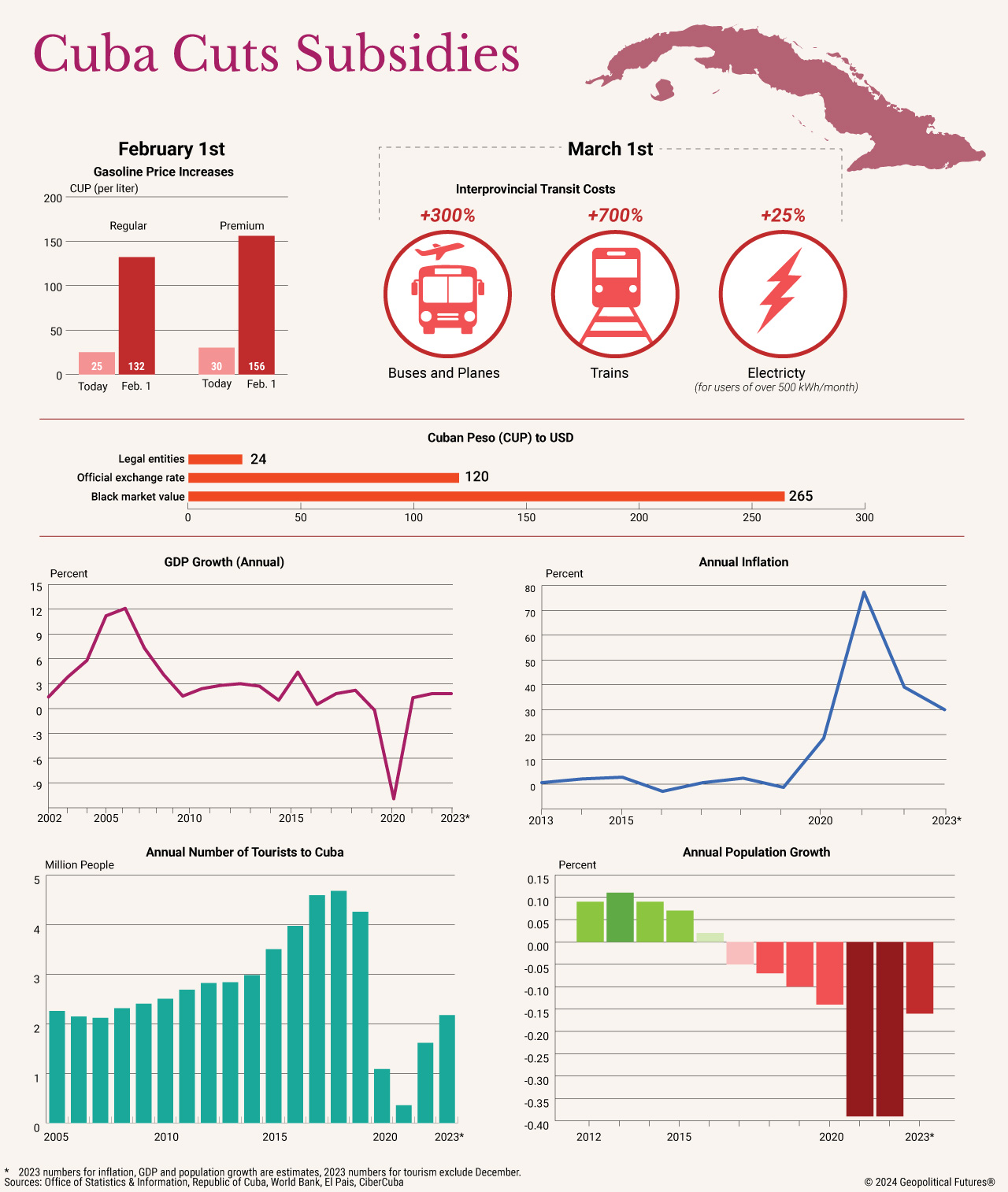After three years on the edge, Cuba’s government can’t conceal the dire state of the national economy any longer. Too few tourists have visited since the pandemic, depriving the island country of the foreign currency it needs to buy fuel from abroad. As a result, industry is running at 35 percent capacity, and the number of buses operating in the capital has fallen by half since 2019. Even food production has been affected, with the Agriculture Ministry reporting that the production of pork, rice and beans is down 80 percent since 2018.
Government subsidies, a hallmark of the communist regime, are finally facing real cuts. For years, Havana took small steps to reform the economy, careful not to undermine regime stability. But things are getting desperate. For example, the government said Monday that 29 fuel stations would accept only dollars, a move that it hopes will raise more foreign currency and support fuel imports.





